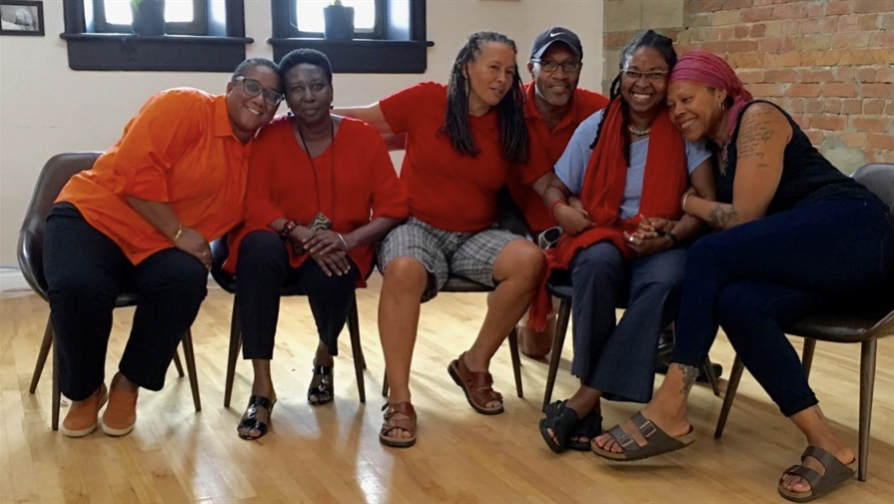On July 3, 2016, the Toronto Pride Parade was ground to a halt moments after it had barely begun. The source of the disruption lay in the hands of the Toronto chapter of Black Lives Matter, a group which had been granted a place of honour in that year’s parade. The group utilized this distinction to call attention to the lack of support and visibility of the Black Queer community in the festivities and the city’s LGBTQ community as a whole. The story behind that community’s struggles and the roots behind that particular protest are laid out in Our Dance of Revolution.
There is a mosaic of stories on display here, largely centred on the activism of Queer black women in the Toronto area. Makeda Silvera recounts forming a housing co-op for queer people of colour in a beautiful old house on 101 Dewson St. Among the residents there was Debbie Douglas who co-founded Zami, the first Canadian group for Black and West Indian Gays and Lesbians. In the same sphere we have Angela Robertson, a key figure in the 80s-era Black Women’s Collective who fought for more Black visibility and representation in the larger women’s movement of the time. Powerful voices that are no longer with us including Sharona Hall are lovingly remembered and the struggle of “Blockorama” a black queer-centered slice of Toronto Pride to maintain it’s existence is recounted.
The male side of the coin features such voices as DJ Mykel Hall who had to fight tooth and nail to bring the urban sound to dance floors on Church Street (Toronto’s Gay District). AIDs activist Junior Harrison recalls his HIV Positive diagnosis at the height of the AIDs epidemic and the double stigmatization that followed. Reverend David Lewis of the Sunset Service rounds things out with how he found faith in a greater power through complete acceptance and love in a church queer people of colour could call their own. These historical proceedings are nicely punctuated by the spoken word poetry of Courtnay McFarlane.
Our Dance of Revolution is bookended by familiar provocative images from the 2016 BLM protest, but the stories that fill the middle of this doc are the real treasure as the audience is granted intimate insight into a community that is unobtainable in the politically-charged space of 24-hour news cycle and endless social media comment wars.
In fact, the stories seem almost disconnected from the BLM protest frame as we are given little context on what lead to that incident beyond the Blockorama drama. It doesn’t help that the little context given from interviewee Rodney Diverlius comes in the form of the 2014 Michael Brown killing. Investigations by the St. Louis grand jury and Obama-era DOJ have long since exonerated the police officer in that case whose account was backed up my numerous witnesses, most of whom were black and biracial. This part of the story would have greatly benefitted from interviews with the likes of BLM Toronto co-founders Sandy Hudson and Alexandra Williams who are both prominently featured in B-roll of the 2016 Pride Parade.
Framing and contextual shortcomings aside, this debut documentary from director Phillip Pike is a valuable look into the layers of Queer Black history in Toronto. There is great value in overlooked voices being granted space to tell their story and those within and without the community will certainly benefit from listening to what they have to say.
7.5/10
![]()
![]()
![]()
![]()
![]()
![]()
![]()
![]()
![]()
![]()
Our Dance of Revolution screens as part of VQFF on Sat Aug 24 at the SFU Goldcorp Centre for the Arts, 4pm

